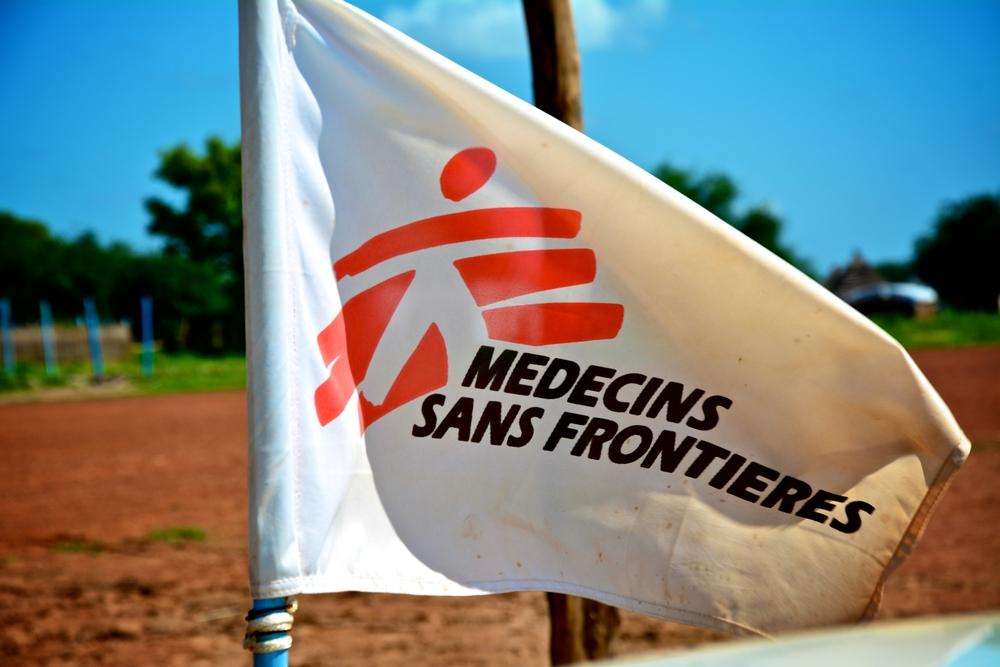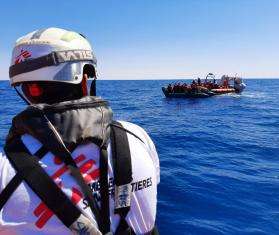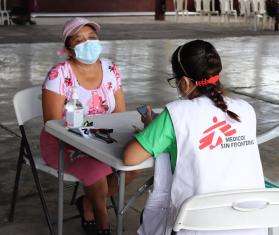Governments must use this week’s meeting to address attacks on hospitals, emergency preparedness and drug-resistant infections
NEW YORK/BERLIN, MAY 17, 2017—Ahead of a meeting of G20 health ministers in Berlin this Friday and Saturday, Doctors Without Borders/Médecins Sans Frontières (MSF) is calling on governments to urgently address three major issues that affect the organization’s work: attacks on hospitals, emergency preparedness and drug-resistant infections.
“The health challenges the world faces demand change that require your attention, resources and leadership,” said Dr. Joanne Liu, international president of MSF. “We are calling on the most powerful governments in the world to make urgent changes that could alleviate people’s suffering in some of the world’s most precarious situations, and could improve people’s access to medical care and medicines."
Specifically, MSF is calling on G20 governments to address:
Attacks on Medical Facilities
From Yemen to Syria to South Sudan to Afghanistan and beyond, health facilities are being looted, burnt and bombed by state and non-state parties to conflicts, resulting in the deaths of thousands of civilians, including patients, doctors and nurses. Such attacks also deprive affected people of the basic health services they need. Despite the UN Security Council providing its unanimous support behind Resolution 2286 on the protection of the medical mission one year ago, nothing has changed on the ground.
“Attacks on civilian medical facilities, including direct shelling and air strikes by states on hospitals and clinics, appear, in some contexts, to be a deliberate strategy of war,” said Liu. “There can be no more waiting. You should start your discussions on health systems strengthening by figuring out how to put a stop to the deliberate destruction of health systems themselves. We urge G20 governments to turn Resolution 2286 into concrete measures in war zones in order to stop the attacks on facilities and people whose responsibility is to treat the wounded and sick.”
Emergency Preparedness and Response
When the Ebola outbreak in West Africa was declared in 2014, only a handful of governments and organizations, including MSF, responded. G20 governments should support the World Health Organization (WHO) to ensure affected people are at the center of emergency and outbreak response, and make the needed resources available for WHO to carry out this role while working closely with national authorities. Countries must have incentives to declare outbreaks to WHO transparently and quickly, to allow a coordinated and efficient response. Additionally, preparing for emergencies should not be limited to infectious diseases that are seen as threats to national security.
“Being prepared for emergencies is essential but not sufficient,” Liu said. “There’s no point in being prepared if there’s no response when thousands fall sick or die. G20 governments need to be focusing on the well-being of people in the midst of emergencies and outbreaks rather than tackling this issue from the angle of the threat such emergencies or outbreaks pose to their own countries.”
Moreover, research and development (R&D) efforts can no longer ignore the diseases that predominantly affect the countries and often poor and marginalized communities MSF serves. G20 governments should support recent efforts at the WHO and the Coalition for Epidemic Preparedness Innovations (CEPI) to address these gaps, while ensuring that the results of such R&D efforts are affordable and available to people in need in all countries.
Antimicrobial Resistance (AMR) and Drug-Resistant Tuberculosis (DR-TB)
MSF welcomes last September’s commitments by all governments made in the UN High Level Declaration on AMR yet is concerned that G20 states are backtracking on hard-fought commitments to ensure the response to AMR is truly global, driven by patient needs and adapted to the needs of all health systems, especially low-resource settings.
“G20 governments must make sure public investment for developing effective medicines, vaccines and diagnostics for drug-resistant infections translates into products all people in need can afford and access,” Liu said. “This can only be achieved by separating, or “de-linking,” R&D costs from the price and sales volume of end products. We also urge G20 governments to avoid policies that undermine or restrict access to antibiotics for neglected populations.”
G20 states should particularly focus on DR-TB, which accounted for more than one third of all deaths caused by AMR in 2015. Governments need to improve the dismal global TB statistics by making sure countries affected by the disease implement the best practices and policies recommended by WHO. MSF also calls on G20 governments to support the effort to develop new, affordable TB treatments that can cure all forms of the disease in one month or less, especially the 3Ps (Push, Pull, Pool) R&D Initiative, which is an alternative way designed by MSF and others to fund and incentivize research and development of TB regimens.




